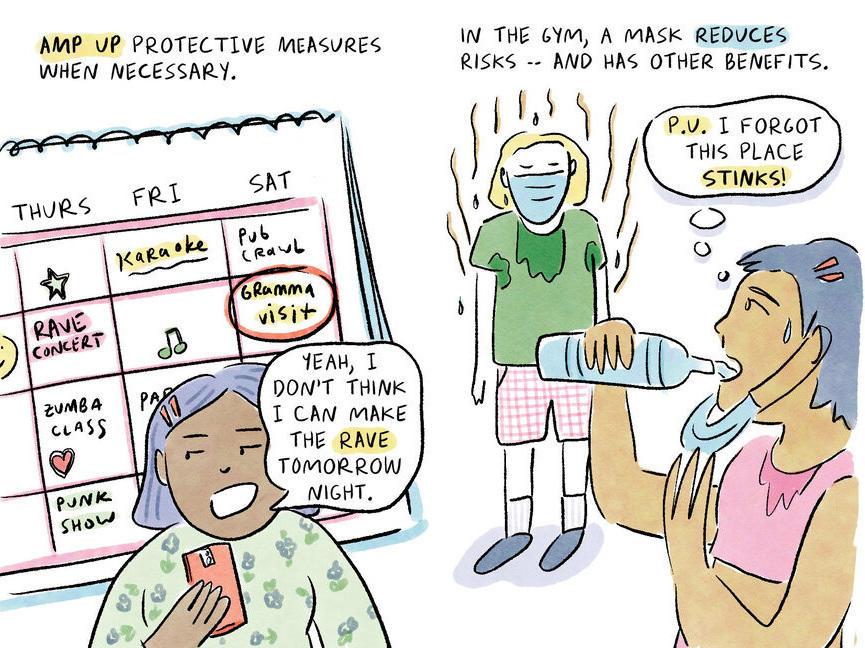Section Branding
Header Content
Top COVID FAQs of 2023: Staying safe at home, flying tips, shot combos, new variant
Primary Content
This is the year that the COVID-19 pandemic was declared to be no longer a global health emergency.
But even though case counts are down in 2023, it's not as if everything is back to normal. There is, for example, a new omicron variant that was first detected in late summer and has spread significantly in recent weeks. It's called JN.1, and health officials have now classified it as a variant of interest. And a frequently asked question is:
How worried should we be about JN.1?
Health officials are not sounding the alarm. The World Health Organization says the overall risk is low.
Based on the limited evidence, JN.1 seems comparable to other circulating omicron variants and doesn't appear to cause more severe disease.
COVID vaccines, including the updated booster, continue to provide protection against severe illness and death. In the U.S., hospital admissions for COVID-19 have been climbing since early November.
The big questions, answered
There have been other pressing COVID questions in 2023. Here are some of the topics we tackled, starting with a quandary about this new phase of the pandemic:
'Emergency' over! Do we unmask and grin? Or adjust our worries?
Is it OK to get a COVID shot and a flu shot and even an RSV shot at the same time?
How do I avoid catching COVID while flying in 2023?
Why do some people get a COVID infection yet show no symptoms?
A few posts from years past drew a lot of readers in 2023 as well:
Can you test positive for COVID from getting a vaccine/booster?
Does a faint line on a self-test mean I'm barely contagious?
Is paxlovid the best treatment?
Copyright 2023 NPR. To see more, visit https://www.npr.org.

